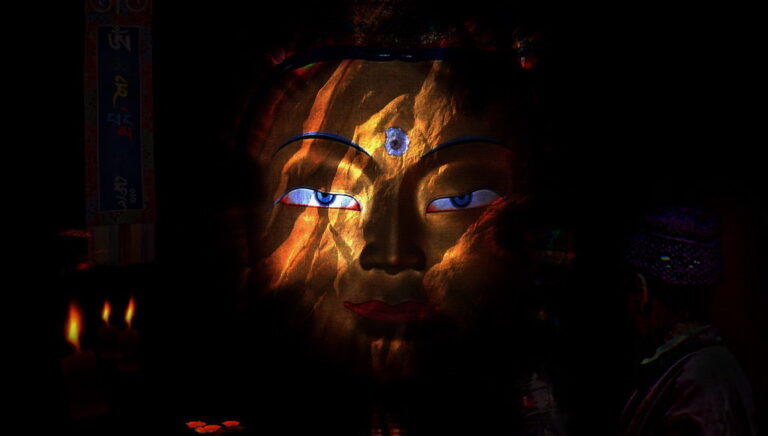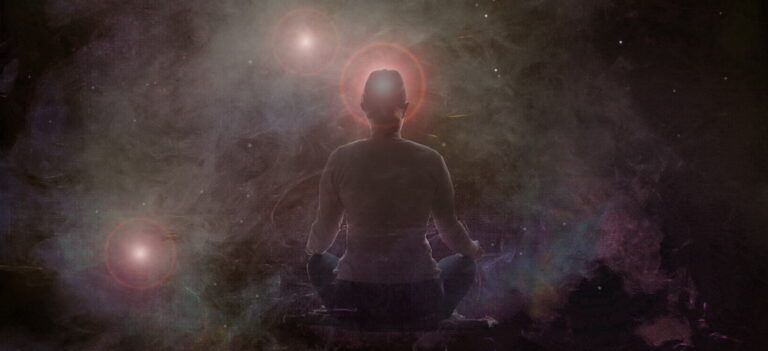Understanding the Mind: A Journey into the Unknowable.
What is consciousness? This is, “THE QUESTION,” in philosophy, ethics, and politics today. It not only frames what it means to be human, it also helps us decide political issues from abortion to same-sex marriage. Is it a manifestation of our eternal energy or soul? Or is it just our cognitive abilities at work?
As part of my personal worldview, I think of consciousness in a particular way. To write about it, I had to define various ideas, so I created the Mindscape Framework, my methodology for exploring consciousness. I also created The Consciousness Evolution Timeline to supplement my ideas. Finally, I drew upon the “levels of the mind” idea from “30 Philosophers,” a work that examines consciousness as a fundamental aspect of the story of human thought.
Ok, now back to the big question: What is consciousness?
To me, consciousness is a simple idea. It is the experience of living, and all life that has cognitive abilities has some form of unique consciousness. However, human consciousness as a unique thing is what many people talk about when they think of it, but I think that approach is a mistake.

Some say consciousness is suffering or the feeling of “self,” but I think that singular focus is also a mistake. Occam’s Razor says, given no reason to doubt, the simplest explanation is usually correct. That’s a very helpful heuristic but we have to watch out for oversimplification. Boiling consciousness beyond the point of “experiencing life” I think is an oversimplification. Rather than trying to boil consciousness down to something too simple, I think taking a holistic and reductive approach works better. The question I attempt to answer is: what are the elements of experiencing life and are there any elements of consciousness beyond those?
Even when studying the human mind scientifically, scholars sometimes take a human-centric approach because our cognitive abilities, our engine, our intellect is superior to other animals on Earth. But I think that too is a mistake. I think we need to look at consciousness beyond humans; we need to rise above our anthropomorphic bias.
Let’s break it down.
1: Human Consciousness
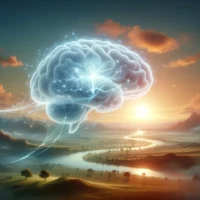
First, let’s talk about the magical aspect. Many like to limit their discussion of consciousness to humans because of the belief in a life force, energy, or soul. Those with this anthropomorphic view tend to say things like, “True consciousness is limited to humans, animals are not truly conscious.” I think that is a mistake. In my writing, I dance around that aspect of the debate as unknowable. In my Mindscape Framework, I acknowledge this view, but set it aside as a topic for a future discussion. There is no conflict here. You can still believe in a soul or energy and read my writing, and engage with my framework to explore the mind, identity, and consciousness.
But that still begs the question, what is the “self” or the thing that feels like “life?” To answer this question, we have to move from a reductive approach to a holistic one. If consciousness is simply the experiencing of life, what exactly does that mean? I think the answer is that experiencing life is your ability to process multiple things, including things like memory, emotions, and your worldview. That’s why I had to create my Mindscape Framework to properly explore consciousness. I had to organize my thoughts on those elements.
For example, Augustine of Hippo, the great philosopher, clarified some ideas on consciousness. One of Saint Augustine’s ideas clarified the passing of time for humanity. He framed the passing of time, or chronoception, as something of the mind. Moving it from the external to the internal. Specifically, he described the present moment, the “now,” as a combination of past memories, current emotions, and future expectations. His reductive approach to looking at consciousness helped to push us in the right direction. From there we clarified that eyes are not magical flashlights that emit light, but rather receive it. Eventually we understood things like memory, cognitive ability, sentience, self-awareness, and intelligence.
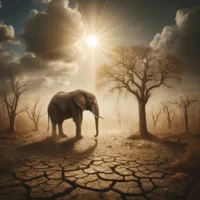
Beyond being judged as overly simple, why do some philosophers focus on specific abilities to define consciousness? Focusing on an element or two of consciousness can be useful, especially to philosophers. For example, some philosophers focus on suffering as the trait that defines consciousness. While useful, especially to explore human ethics, it is an arbitrary assignment when applied to all possible life in the universe. With that said, reductive approaches are very useful, like assigning the trait needed for consciousness based on the ability to reason or feel enjoyment.
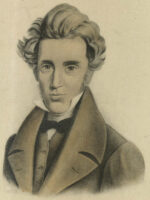
And the bottom line to many is that assigning specific abilities in specific realms is clearly useful. For instance, angst and suffering. Focusing on angst, the anxieties of life, when treated with an existential view, can be a useful guide to living your life. When you are anxious about something, that’s your biology, your mind telling you it’s decision time, an extension of fight or flight. Understanding the role of angst in your life and using it to make a “leap of faith” toward that new job or new car can be very useful.
The first existentialists focused on angst, notably starting with Soren Kierkegaard, born 1813. Angst is an Earth-centric view.

Angst, an advanced cognitive emotion, focuses on the animal kingdom on Earth and is extremely useful within that realm. All animals with a central nervous system have the ability to experience some form of anxiety, from extremely basic to what humans feel. Yes, animals experience forms of anxiety, and that anxiety does help them make decisions, but is that what makes something conscious?

Suffering too, while overly simple from my view, is useful in the realm of ethics. We can use the fact that things suffer to determine the value of acts. If two groups of people might suffer because of an act, we can explore that suffering to determine if an act should be performed. For example, take any political question, such as gay marriage. We can explore the potential suffering of the groups involved. We can frame the discussion around which group suffers more.
One notable philosopher in this context is Jeremy Bentham, born 1748, and the founder of utilitarianism. While Bentham himself did not use this definition explicitly for consciousness, he famously argued for the consideration of animals based on their ability to suffer. In his introduction to the principles of morals and legislation, Bentham wrote:
“The question is not can they reason, …nor can they talk, [but] can they suffer?”
This perspective has been influential in discussions about consciousness and moral consideration, emphasizing the capacity for suffering as a key criterion for moral significance. Modern philosophers and ethicists, particularly those advocating for animal rights, such as Peter Singer, have expanded upon these ideas, arguing that the capacity to experience suffering grants beings their moral status, thereby influencing contemporary debates on consciousness and ethics.
These criteria, while significant, exclude beings that experience the world in ways we cannot fully comprehend. While reductive exploration like this is very useful, I think a holistic look at it is warranted.
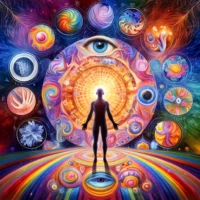
For now, let’s stick with human consciousness.
Next, let’s acknowledge that consciousness has a uniqueness to each person, it has a quale. The idea that it is subjective. Each person experiences life from their unique view. A worldview shaped by genetics and their personal life experiences. The qualia of life, with its rich tapestry of subjective experiences, varies significantly from person to person. For instance, if you ask ten people to describe the taste of milk chocolate, you might get 10 unique answers! This variety underscores the unique palette of perceptions each of us brings to even the most common of experiences.
Consciousness as Magic
For human consciousness, let’s start with the definition from Chapter 7 of “30 Philosophers.” Here it is:
“Consciousness is a continuous, self-aware state of existence, an incessant ebb and flow of perceptions, ideas, and emotions.”
Here’s an analogy: Consciousness is like being in the driver’s seat, personally experiencing the ride of life, complete with all its twists and turns. Cognition is the car’s engine, and the driver is the consciousness.
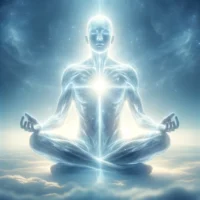
Next, let’s carve out human essence. To some, consciousness is something limited to humans. It is special and unique, as in your soul or the divine spark that separates humanity from the rest of the natural world. It is something like an energy that is eternal in some way. In this view, it is not something that emerges from the physical, and it is limited to humans on Earth. This view falls into the unknown and likely into the unknowable, but no one can rule it out. Let’s call our consciousness simply “human consciousness,” and the soul-like eternal thing that many of us belief in, our “human essence.” This allows us to talk about our human essence and our human consciousness as distinct things.
Now, to be clear, both our human consciousness and essence refers to the humans alive today; all of them; from mentally challenged to geniuses. However, while we’ll mention the consciousness of the supernatural, as in God, the gods, angels, and the devil, as well as future humans and even aliens, our focus for this article is on animal life here on Earth. Furthermore, our human consciousness is limited to humans since the cognitive revolution. That’s when humans got their last bit of brain power.
Consciousness as a Thing
Later, in Chapter 16, I redefine “consciousness” away from humans and toward the experiencing of life. Here it is:
“Consciousness is the ability to experience using a combination of mental abilities, memory, and perception.”
The duality of consciousness is explored throughout “30 Philosophers.”
Diving into the essence of consciousness, we traverse a landscape that’s as vast and varied as human experience itself. Consciousness, at its core, is the experience of living — a phenomenon that is not just a byproduct of cognitive functions but an intimate dance of perception, memory, and emotion. To some, it is spiritual as in a gateway to understanding the profound connections between mind, body, and the universe, encouraging a deeper exploration of what it means to be alive.
This tapestry of human experience, or qualia, emphasizes the subjective nature of consciousness. Every individual perceives the world through a unique lens, shaped by their personal history, genetics, and environment. The richness of this personal experience challenges us to view consciousness not merely as a universal attribute but as a deeply personal journey into the self.

Addressing the question of what it means to be “self-aware” or to possess a “self” that experiences life, we find ourselves moving from narrow, reductive analyses to a broader, holistic understanding. Consciousness transcends the sum of its parts, embodying the intricate interplay between our memories of the past, emotions in the present, and anticipations for the future. This interconnectivity highlights the importance of considering consciousness as a whole, rather than isolating its components.
Moreover, the dialogue around consciousness often gravitates towards human experience, influenced by our unique cognitive capabilities and the speculative existence of a soul or spiritual essence. While these discussions offer valuable insights, they can sometimes overshadow the broader spectrum of consciousness observed across various life forms. Recognizing consciousness in a broader context challenges us to reevaluate our anthropocentric viewpoints, urging us to consider how other beings experience their existence. This expanded perspective fosters a more inclusive understanding of consciousness, one that embraces the diversity of experiences across the biological and possibly non-biological realms.
As we continue to explore the enigma of consciousness, the Mindscape Framework provides a structured yet flexible approach to understanding this multifaceted phenomenon. It encourages a balanced examination that acknowledges the specialness of human consciousness while advocating for a broader, more inclusive perspective, as well as an exploration beyond the known, beyond human cognitive abilities.

Weekly Wisdom Builder
Got 4 minutes a week?
A new 4-minute thought-provoking session lands here every Sunday at 3PM, emailed on Mondays, and shared throughout the week.
Exactly what the world needs RIGHT NOW!
2: Animal Kingdom Consciousness
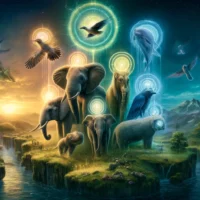
A key question is, is consciousness limited to beings with higher cognitive abilities? Many say yes, others limit it to humans, still others pick a cognitive ability level like suffering. For me, since the definition I’m using relies on a thing’s ability to experience reality, consciousness only requires the ability to experience life. In the animal kingdom on Earth, the ability to “experience” life is limited to animals with a brain.
To help frame consciousness overall, let’s rule out a few things. In all descriptions of consciousness I’ve seen, it includes cognition. Cognition, one’s cognitive abilities, is related to having a brain, which evolved in animals about 500 million years ago. So that rules out non-living things like rocks as well as lower lifeforms without a brain. We can safely rule out plants, fungi, and microorganisms as well as the first animals, such as sponges, jellyfish, and corals. For a deeper exploration of life leading up to brains, refer to my Mindscape Framework.
Let’s also carve out lower cephalopods but keep the common octopus in this discussion as a fascinating example of convergent evolution and cognitive ability. Cephalopods branched off the evolutionary tree early, around 485 million years ago, after the nervous system evolved, but before brains became more complex. It’s fascinating that the cephalopod branch independently evolved complex intelligence. But their brains are fundamentally different than later animal brains. Take the common octopus. While they possess highly complex brains and show remarkable intelligence, the understanding of their emotional lives is still rudimentary. Cephalopods are often studied for their problem-solving capabilities, but whether they experience emotions in a way that humans can recognize remains a topic of scientific inquiry.
This also applies to crows, the tip of the bird branch evolved clever complex brains. Birds evolved from dinosaurs, and their evolutionary branch split about 300 million years ago. It’s fascinating that the processes of evolution led to complex brains in at least thre different branches.
Let’s carve out insects too. Insects have brains and exhibit complex behaviors, including social interactions in species like bees and ants. While they clearly experience reality, it is different than the mammal branch. They experience bee consciousness, a type of insect consciousness. However, they lack complex intelligence and the extent to which insects experience sensations or emotions is still largely unknown due to their significantly different neural architecture.
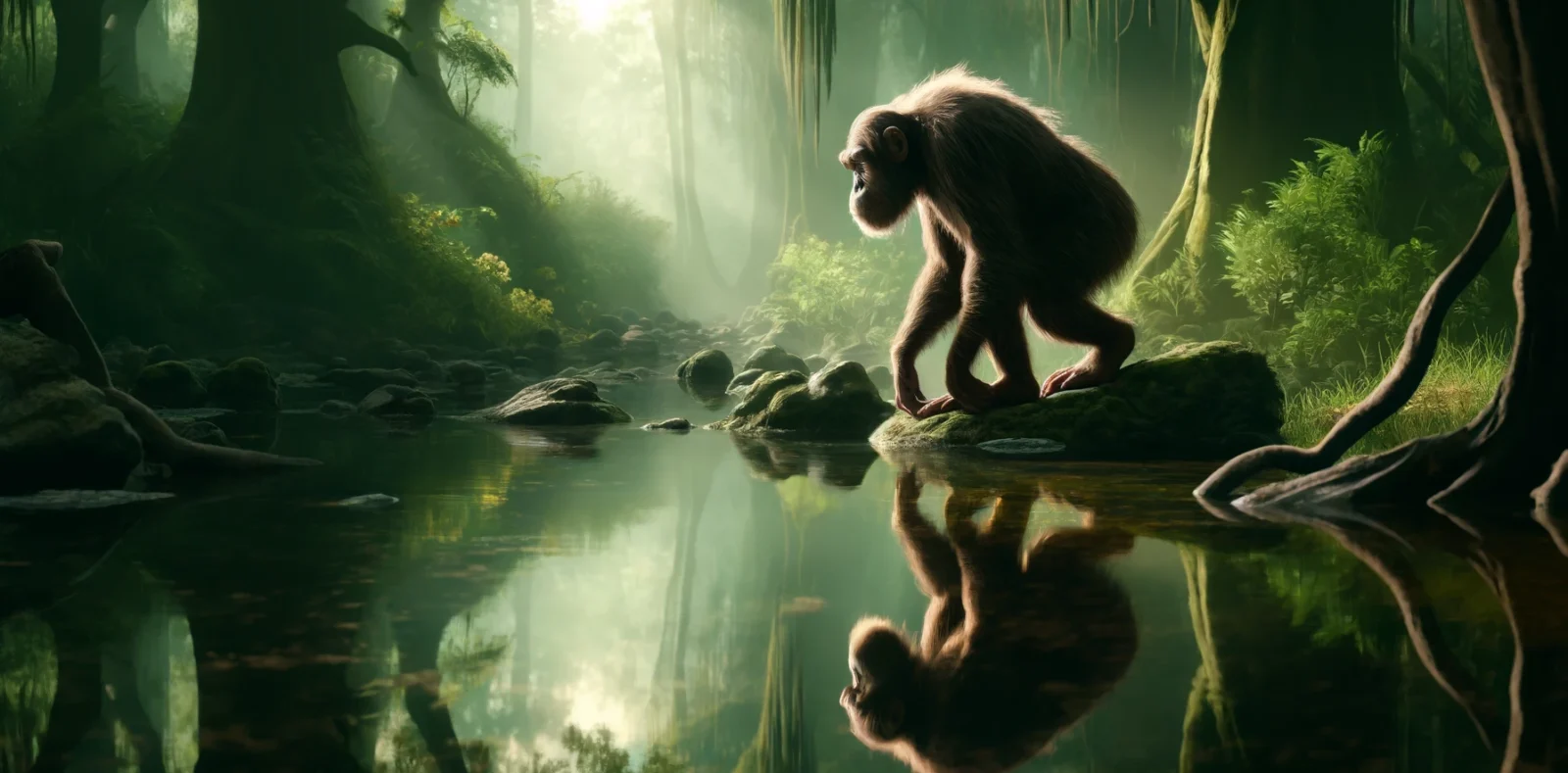
Self-awareness is the understanding that you exist. The ability to recognize yourself in a mirror is a simple and easy test for self-awareness. It includes a scale of self-awareness that directly correlates to the evolutionary progression of species. While we find some self-awareness in dogs and cats, we find human-like self-recognition in the great apes, elephants, and dolphins. We even see it in some birds, like magpies.
Because the definition we are using of consciousness is “experiencing reality,” I think we’ve successfully described two types of consciousness: simple and complex. Simple consciousness in the animal kingdom is limited to animals with a nervous system with at least some sensory perception, and perhaps some degree of emotional responses. This category encompasses beings that can experience their environment and engage with it in meaningful ways, albeit without the depth of cognitive complexity seen in entities with complex consciousness. Animals from fruit flies to lizards exhibit simple consciousness. Whether the common octopus falls under simple or complex is still under investigation.
Complex Consciousness is reserved for entities with advanced cognitive abilities, including but not limited to self-awareness, sophisticated problem-solving, nuanced social interactions, and possibly symbolic thought or language use. This category includes humans, certain mammals, some birds, and potentially advanced artificial intelligences or hypothetical extraterrestrial life forms. Beings with complex consciousness are capable of reflecting on their existence, making complex decisions, and experiencing a broad spectrum of emotions and thoughts.
3: Beyond Earth
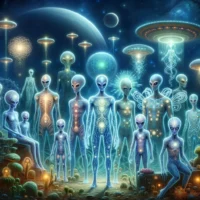
Adopting a holistic view is essential because it helps us shake off our human-centric glasses. Consciousness? That’s a term that really opens the door to endless speculation, weaving together the known with the unknown. It’s a mix of hard facts, logical reasoning, and then there’s the wild card — the irrational. Those irrational bits sit in the murky territory of the unknown (stuff we might get a handle on someday) and the unknowable (the mysteries that, by definition, will stay mysteries). I like to zoom out from just thinking about humans and consider the wider animal kingdom on Earth, and even toy with ideas about the supernatural, deities, and extraterrestrial beings. What’s consciousness like for them, if they’re out there?
Watch this space. Upcoming articles will dive into the consciousness of AI, toy with thoughts on alien beings, and even dabble in the supernatural.
Conclusion
This exploration into the nature of consciousness sprang from the curious and insightful inquiries of the beta readers of my upcoming book, “30 Philosophers: A New Look at Timeless Ideas.” Diving deep into the realms of cognitive abilities and consciousness forms a core theme of the book, reflecting the rich tapestry of human thought through the ages. In weaving this narrative, I’ve aimed to gently challenge our human-centered perspectives, encouraging a broader view that transcends our own experiences.
Throughout this article, we’ve navigated the complex landscape of consciousness from multiple angles — holistic, reductive, and focused. Each approach offers its own insights into the intricate workings of the mind and the phenomenon of life itself. The takeaway? It’s not an either/or situation. Embracing both holistic and reductive perspectives, enriched by specific areas of focus, provides a more comprehensive understanding of consciousness. This multifaceted approach not only broadens our intellectual horizons but also deepens our appreciation for the diverse manifestations of consciousness across the spectrum of existence.
As we close this chapter, the journey is far from over. The quest to grasp the full essence of consciousness continues, promising new discoveries and deeper understanding as we further explore the mind, life, and the very fabric of reality. Stay tuned — the conversation about consciousness is evolving, and there’s much more to uncover.
For a visual look at the evolution of consciousness in animals, check out The Consciousness Evolution Timeline. For a look at the framework that guides my thoughts on consciousness, check out Mindscape Framework.
— map / TST —
For the full story of how consciousness and philosophy mesh, check out 30 Philosophers…
To fully understand the context of our minds within the story of human thought, nothing can replace reading the full story. My book 30 Philosophers, my 15th, tells the story of our best and current ideas from 2600 BCE to today, all from our modern viewpoint and understanding.
Coming December 2024: Immerse yourself in knowledge, not snippets.
- Discover how 30 influential philosophers shaped our understanding of the world.
- Explore the concepts that continue to influence science, art, and culture today.
- Get your copy now and start thinking like the greatest minds in history!


